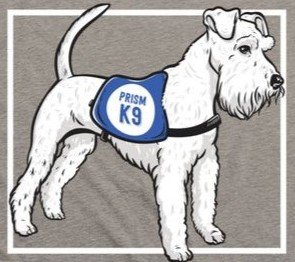
SERVICE DOGS
An explanation of service dogs and their work
Make it stand out.
Service Dogs: Dedicated Companions Enhancing Lives
Service dogs are extraordinary four-legged companions that offer vital support and assistance to individuals with disabilities, helping them navigate the challenges of daily life with greater independence, confidence, and dignity. These highly trained canines play a crucial role in various aspects of life for people with disabilities, offering a wide range of services that go beyond mere companionship. In this article, we'll delve into the world of service dogs, exploring their roles, training, and the remarkable impact they have on the lives of their handlers.
What Are Service Dogs?
Service dogs are specially trained and certified canines that assist individuals with disabilities, providing them with essential support tailored to their unique needs. These remarkable dogs are carefully selected and trained to perform specific tasks, making them valuable partners for individuals with physical, sensory, psychiatric, or other disabilities.
Roles of Service Dogs
Service dogs are trained to perform various tasks to help their handlers, including:
Mobility Assistance: Some service dogs assist individuals with mobility impairments by retrieving items, opening doors, and providing stability while walking.
Guide Dogs: Guide dogs help individuals with visual impairments navigate their surroundings safely, avoid obstacles, and cross streets.
Hearing Dogs: These dogs are trained to alert individuals who are deaf or hard of hearing to important sounds, such as doorbells, alarms, or approaching vehicles.
Medical Alert Dogs: Some service dogs detect changes in their handler's medical condition, such as low blood sugar or impending seizures, and alert them or others for assistance.
Psychiatric Service Dogs: These dogs provide support and assistance to individuals with psychiatric conditions, such as post-traumatic stress disorder (PTSD) or anxiety disorders.
Autism Assistance Dogs: Trained to provide support and sensory assistance, these dogs help individuals with autism by reducing stress and anxiety and creating a social lubricant.
The training of service dogs is a meticulous and lengthy process that typically involves:
Socialization: Service dogs are exposed to a wide range of people, environments, and situations to ensure they can handle any scenario calmly and confidently.
Basic Obedience: Service dogs must master commands like sit, stay, and come to ensure they can behave appropriately in public settings.
Task-Specific Training: All service dogs are trained to perform specific tasks or work relevant to their handler's disability.
Public Access Training: Service dogs are trained to remain calm and obedient in various public settings, including restaurants, stores, and transportation.
Certification: Once one of our service dogs has completed its training, it will go through a certification process to verify its abilities.
Legal Protections for Service Dogs
In the United States and many other countries, service dogs are granted certain legal protections, including access to public places and accommodations under the Americans with Disabilities Act (ADA). Businesses and public entities are generally required to allow service dogs to accompany their handlers and provide the necessary accommodations.
Service dogs are exceptional companions that enhance the lives of individuals with disabilities in profound ways. Through rigorous training and unwavering dedication, these intelligent and empathetic canines provide invaluable assistance, fostering independence and improving the overall well-being of their handlers. Their ability to perform essential tasks and offer unwavering support makes service dogs true heroes, demonstrating the remarkable bond between humans and their canine partners in the journey toward a more inclusive and accessible world.
Service Dogs change lives

“Dogs serve people, but people serve cats.”
— Temple Grandin

